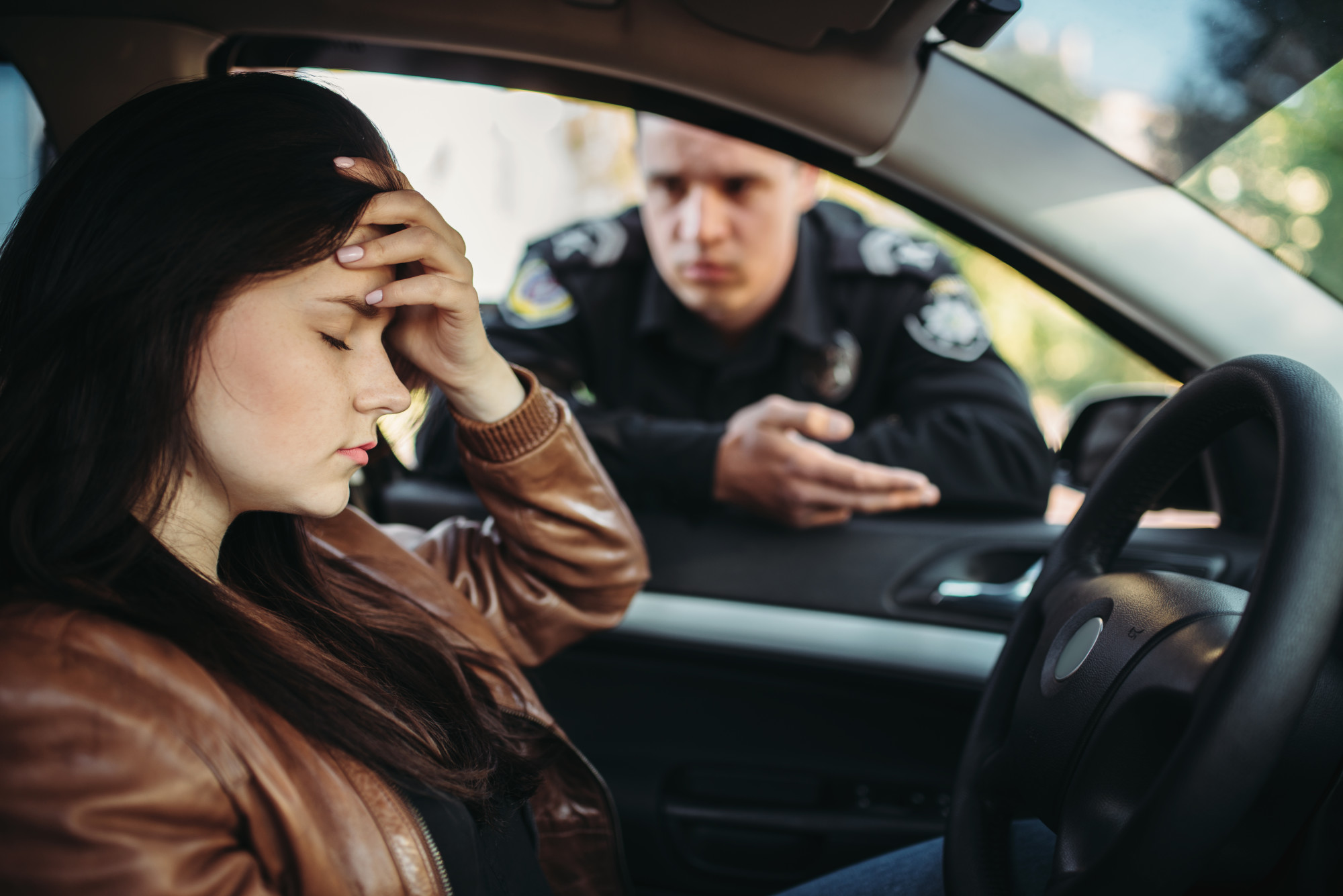
Male cop in uniform check female driver on the road. Law protection, car traffic inspector, safety control job
There’s no doubt that you’ve heard the popular acronym DUI bandied out before. But there’s no guarantee that someone’s actually taken the time to explain to you what it means.
In this article, we’ll explain to you what a DUI is, compare DUI vs. DWI acronyms, and tell you everything else you need to know about DUIs.
What Does DUI Mean?
DUI is an acronym for “driving under the influence”. That is, driving under the influence of alcohol or some other mind-altering substance.
Driving while impaired in this fashion is illegal in all fifty states. Although there are thresholds of impairment (for instance, you can have a nonzero blood alcohol concentration, as long as it is below 0.08), if you exceed the maximum thresholds while driving and are caught doing so, there can be significant legal consequences.
DUI vs. DWI
Another common acronym is DWI. DWI stands for “driving while intoxicated”. In some states, it can also mean “driving while impaired”. Thus, depending on the state you are in, the DUI meaning and the DWI meaning can be one and the same. As a general rule, they are used interchangeably.
The principal difference between the two terms, if one exists, is that DWI refers to alcohol in those states that DWI is defined as “driving while intoxicated”. Both offenses usually carry similar penalties.
What Happens When You Get a DUI or DWI?
If you ever find yourself on the wrong side of the law and receive a DUI or DWI, several things are likely to happen. For one, the officer who pulls you over will likely arrest you and you will spend the night in jail, or until you are bailed out. This is because you will be impaired and unable to drive your vehicle home.
Once you are bailed out, you will have a court date set. The prosecution will seek a heavy fine alongside a license revoking or suspension. It is advisable that you get a lawyer immediately as soon as you are charged with a DUI or DWI.
With a lawyer, there is a chance that you could have the record expunged from your record so that it doesn’t impact your future career prospects. But without a lawyer, you stand no chance against the prosecution. You’ll likely have to pay thousands of dollars in fines and court costs, lose your license (at least for the time being), and end up with the violation on your record.
Don’t Drive While Impaired
Now you know the difference between DUI vs. DWI, and you know that all of the negative effects that typically result can be easily avoided if you simply do not drive while impaired.
Be responsible and choose to call an Uber or a friend if you need a ride home from the bar. Taking your car home that night simply isn’t worth it in comparison to the legal consequences you could face, not to mention the damage you could cause to yourself and others on the road.
For more legal articles, be sure to check out the rest of the articles on the website!
Leave a Reply